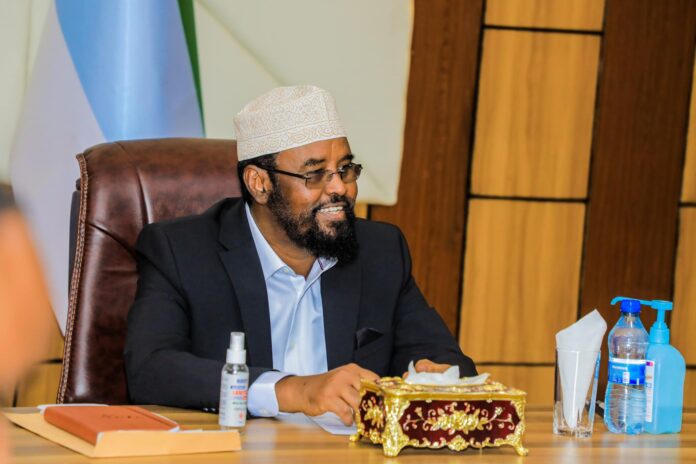KISMAYO, Somalia — The regional state of Jubaland has announced the suspension of all cooperation with the Federal Government of Somalia, escalating tensions over political and governance issues. The decision, made public early Sunday, marks a significant rift in the country’s federal structure.
Jubaland’s Ministry of Interior issued a statement citing the Somali government’s rejection of a recently appointed election commission by the Jubaland president as the primary reason for the move.
This action comes in the wake of deep political disagreements, particularly concerning the implementation of a one-person, one-vote electoral system, which has been a contentious goal of President Hassan Sheikh Mohamud.
“Jubaland will not tolerate interference in our internal processes,” said a spokesperson for the Jubaland administration, highlighting the state’s commitment to maintaining its governance system and constitutional implementation independently.
The suspension follows similar action by Puntland, another federal state, which also ceased cooperation with the central government earlier this year. Both states, predominantly inhabited by the Darood clan, are critical of what they perceive as centralization efforts by Mogadishu.
Political analysts view this as a significant blow to national unity efforts, potentially impacting the fight against al-Shabaab and other national security initiatives. The move could further complicate Somalia’s already fragile journey towards stability and federalism.
The Federal Government in Mogadishu has yet to respond to Jubaland’s announcement. However, sources indicate that negotiations might be sought to resolve the impasse, as both sides need cooperation to effectively combat ongoing security threats and to move forward with national elections.
This development underscores the ongoing challenges within Somalia’s federal system, where regional autonomy often clashes with national governance efforts, particularly in the lead-up to elections.





